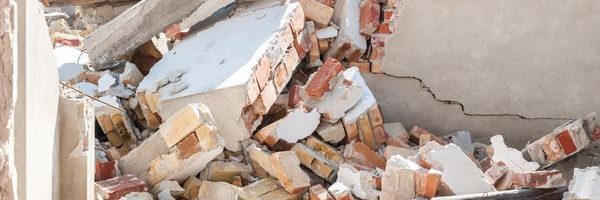In July 2020, a three-story building in Brooklyn suddenly collapsed to the terror of passers-by. Luckily no one was seriously injured as a result of the collapse, but the outcome could have been tragic. Records showed that since 2005, New York City’s Department of Buildings had issued eight fines to the building’s owner for things like cracks throughout the property and a bulge in one of the walls. The property owners made insufficient efforts to repair the defects in the building, and as a result, there was a devastating collapse.
Common Causes of Building Collapses
Property owners have a duty to keep their premises free from dangerous conditions for the safety of a building’s occupants and the public. This isn’t always the case, however, and the results can be deadly. Some common causes of building collapse include:
- Inadequate Building Materials—structural elements degrade and deteriorate over time, especially in older buildings.
- Rust, Mold, and Water Leaks—if these conditions are left untreated, it can weaken the structure of a building and leave it prone to cracking, sagging, and eventually collapsing.
- Foundation Failure—if the soil shifts or there is excess water under a building, a foundation can fail and cause a building collapse.
- Excess Snow or Debris Buildup—if excess snow or debris accumulates on top of a building, especially a smaller building, this can affect the building’s structural integrity.
- Poor Design or Construction—if a building is poorly designed or not built in accordance with approved plans, it can have problems that lead to a collapse.
Who is Liable for a Building Collapse?
Building collapses can cause serious injuries and even take lives. Finding the party liable for the injuries is crucial to a successful claim for compensation. In the case of a building collapse, there can be a number of different parties responsible:
- Property Owner—the owner of the property is responsible for fixing dangerous conditions. They have an obligation to keep their premises safe.
- Building Manager—when a building has issues such as mold or water leaks, building managers are responsible for correcting these problems.
- Contractors—if a building was improperly constructed, then the contractors involved in constructing the building may be held liable.
- Engineers and Architects—if there were errors in the plans for a building, then the engineers and architects involved in making these plans may be responsible.
Contact a New York City Attorney
If you were injured in a building collapse, you should have an experienced attorney evaluate your case. For over 50 years, the attorneys at Bonina & Bonina, P.C. have been helping injured New Yorkers. Contact us online or call us at 1-888-MEDLAW1 to schedule your free consultation. Home and hospital visits are available. Se habla español.

